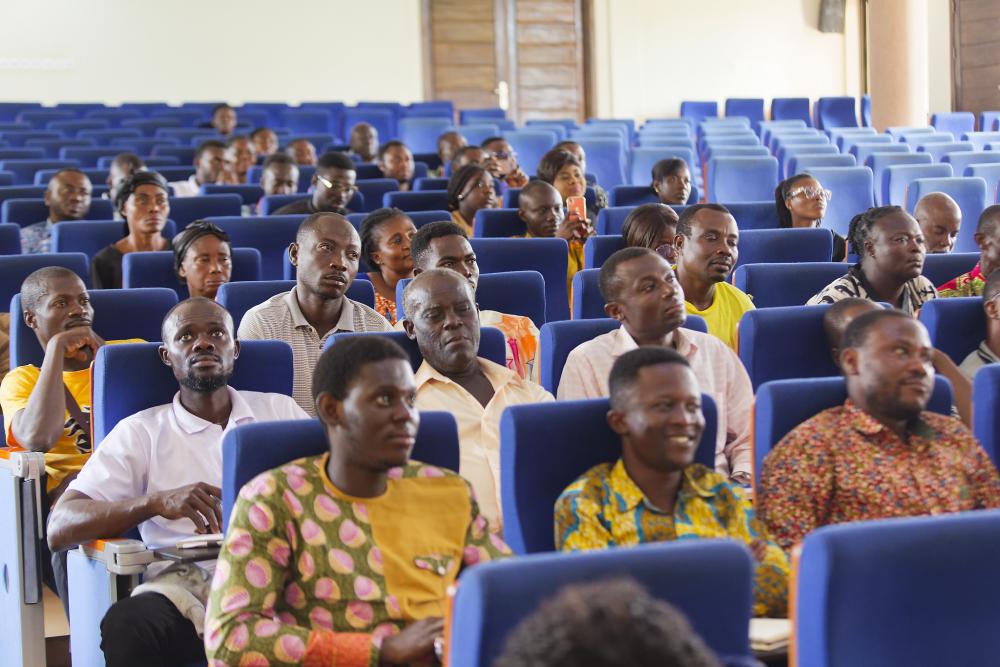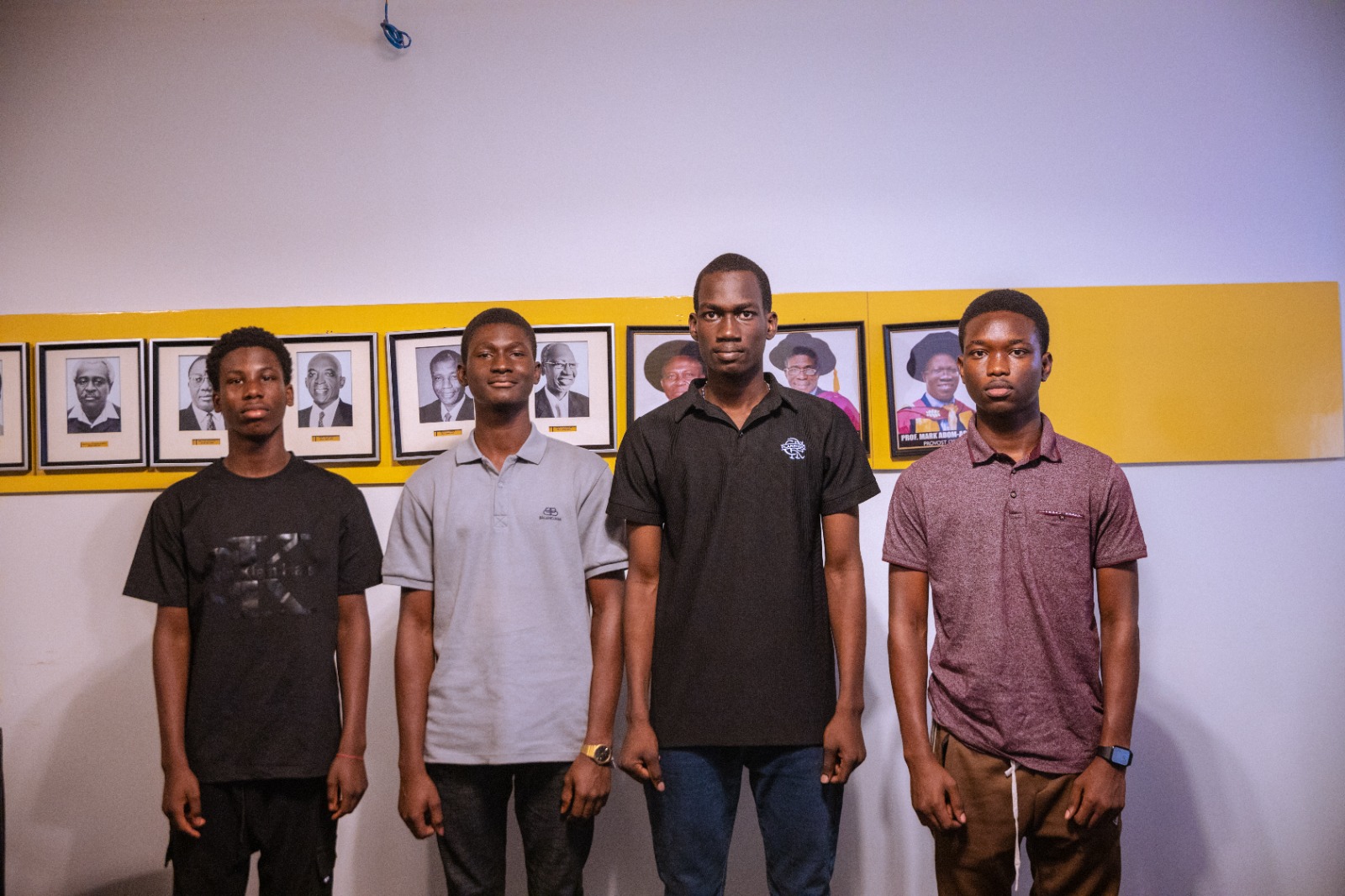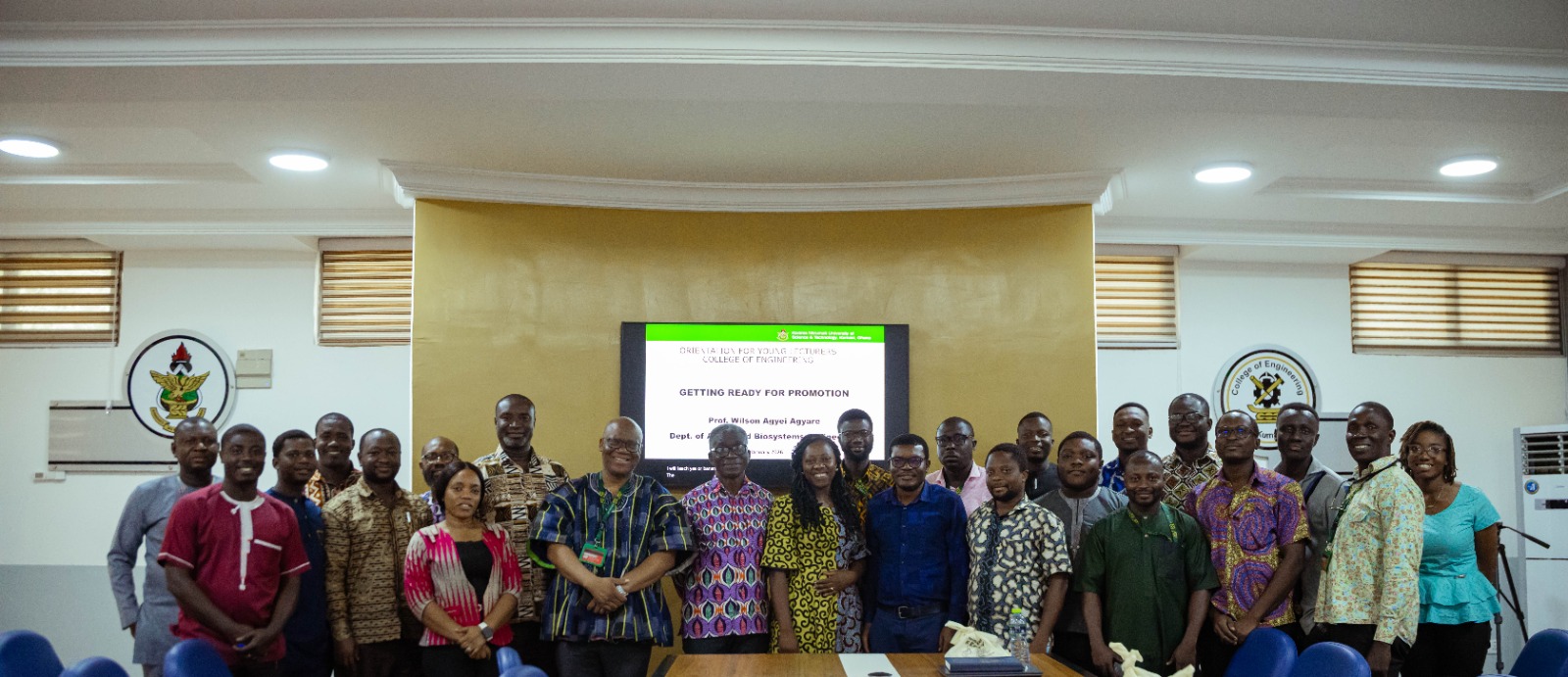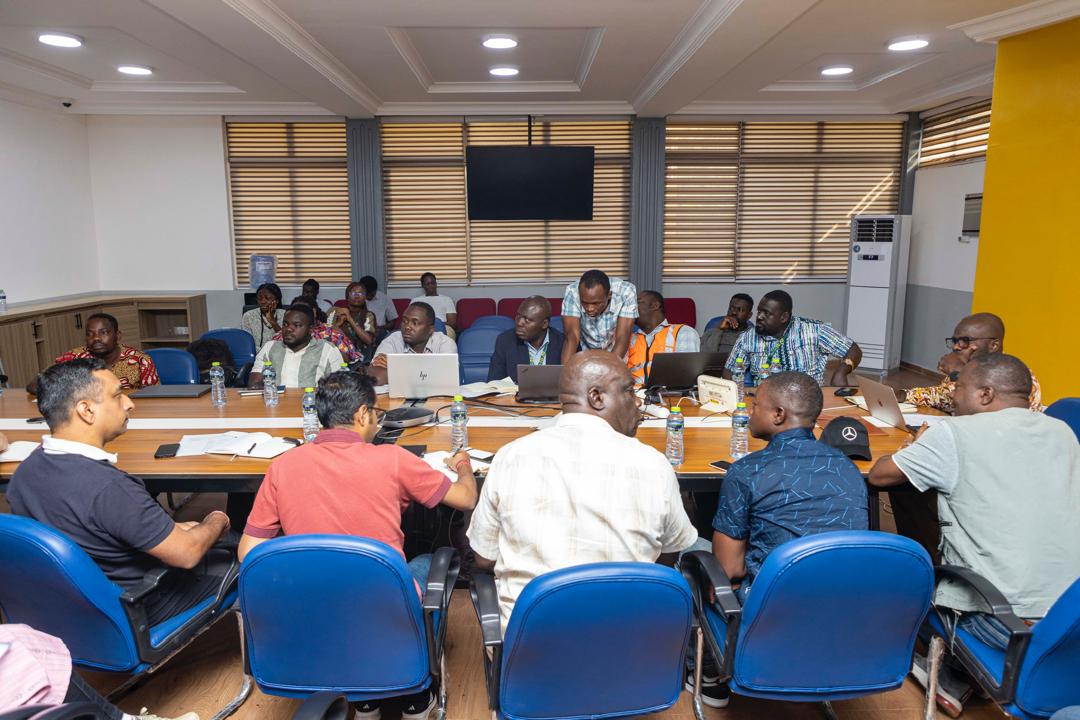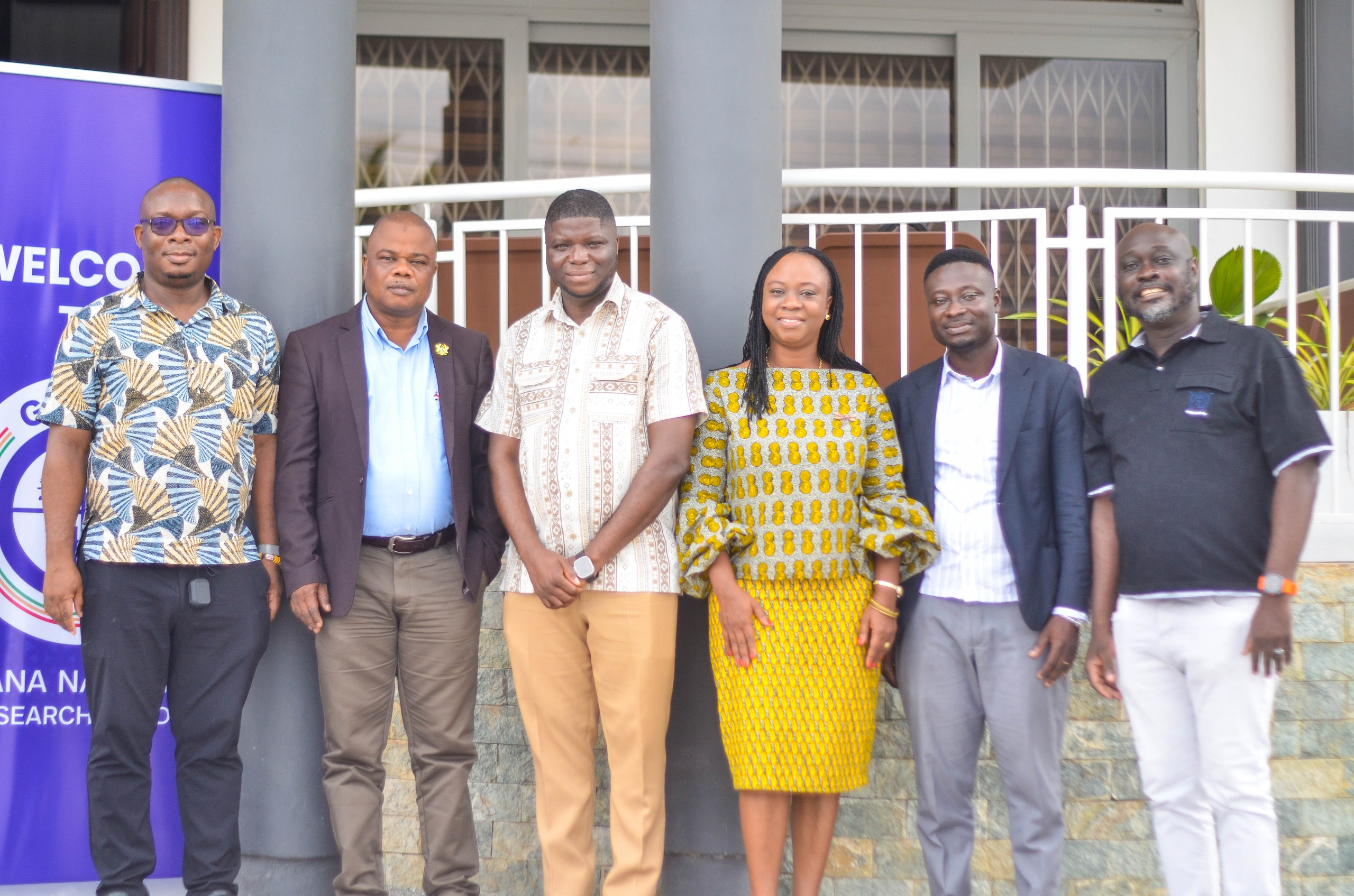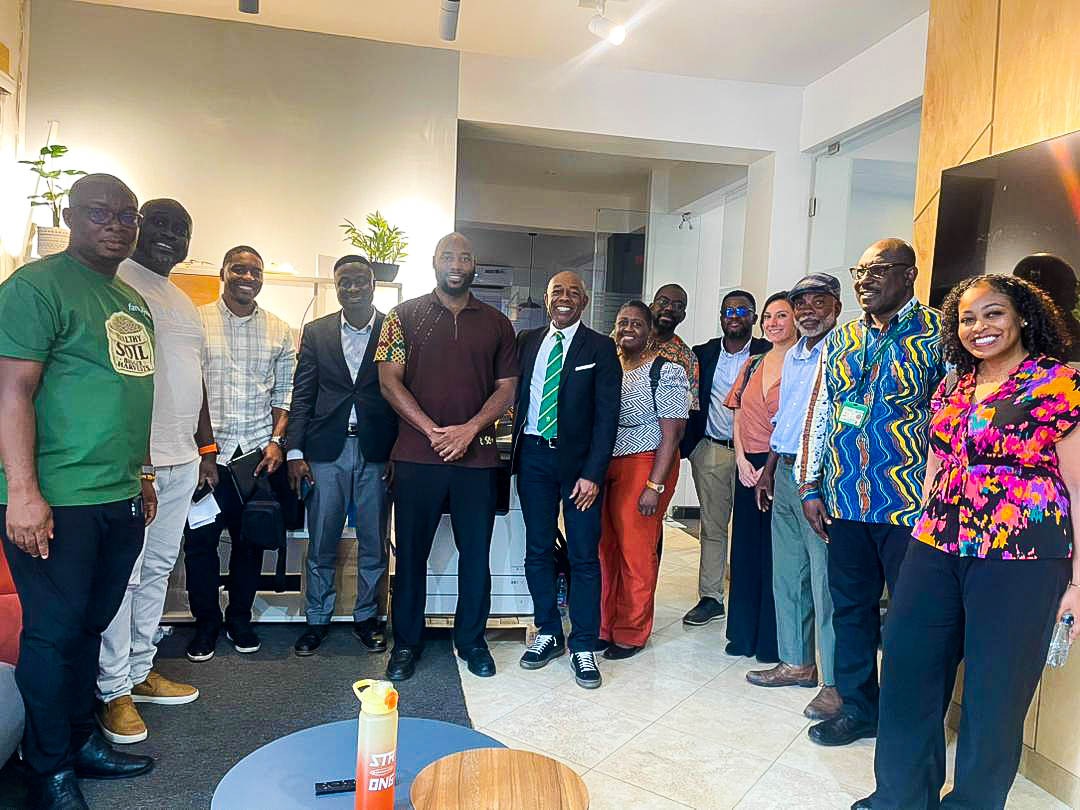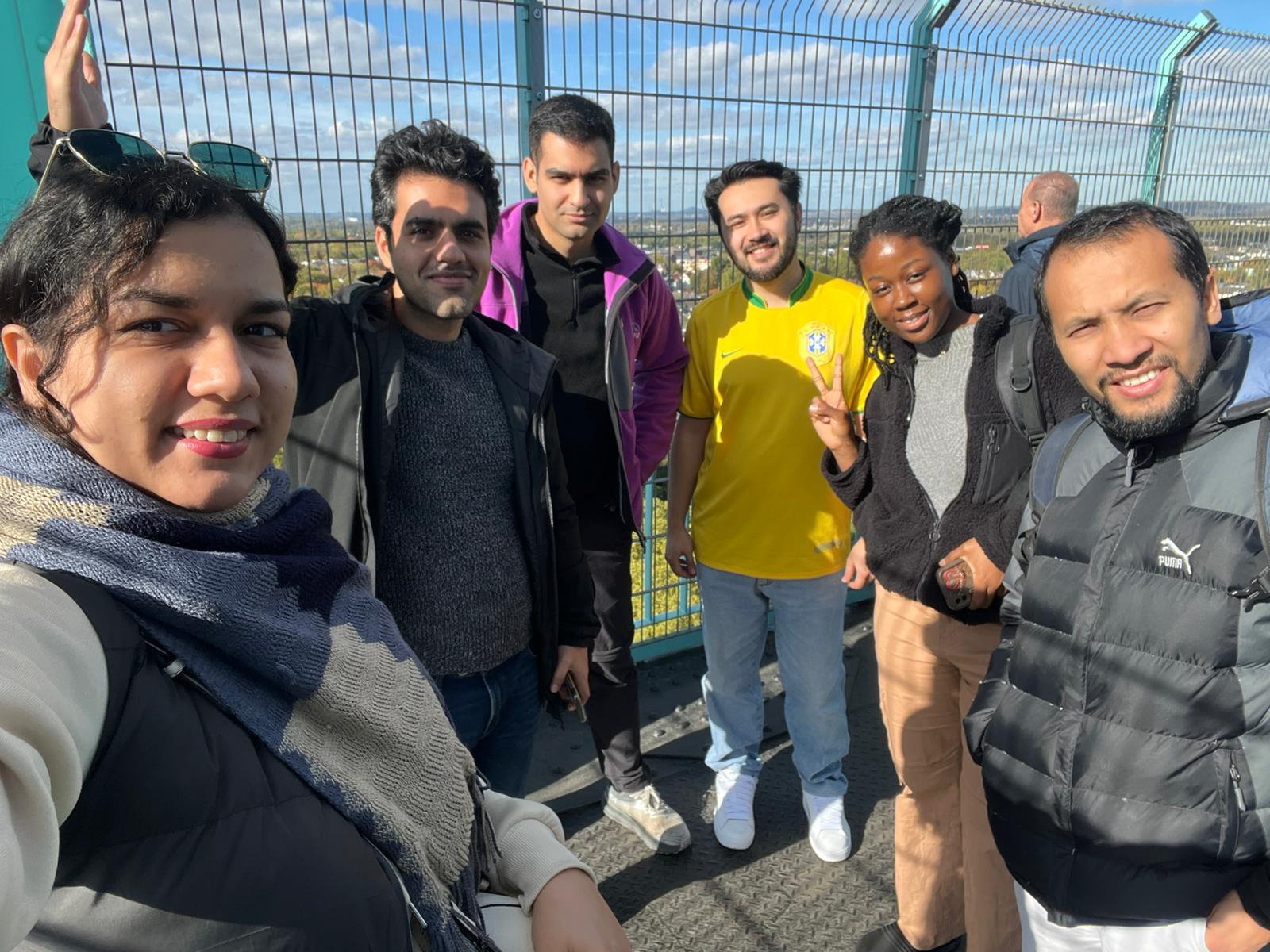The Women in Technology theme of the Responsible Artificial Intelligence Lab (RAIL), as part of its mandate to strengthen women’s participation and the integration of AI technologies into operations for efficient productivity in various sectors, organised a capacity-building workshop on 4th October 2024 at the College of Engineering New Building. The workshop promoted advocacy and training on the essence of AI technology application in various operations within the selected four sectors (Small-Medium Scale Women Entrepreneurs, Artisans, Education and Agriculture). The participants were randomly selected from the organised associations. The workshop was in two sessions: a plenary and a breakout section.
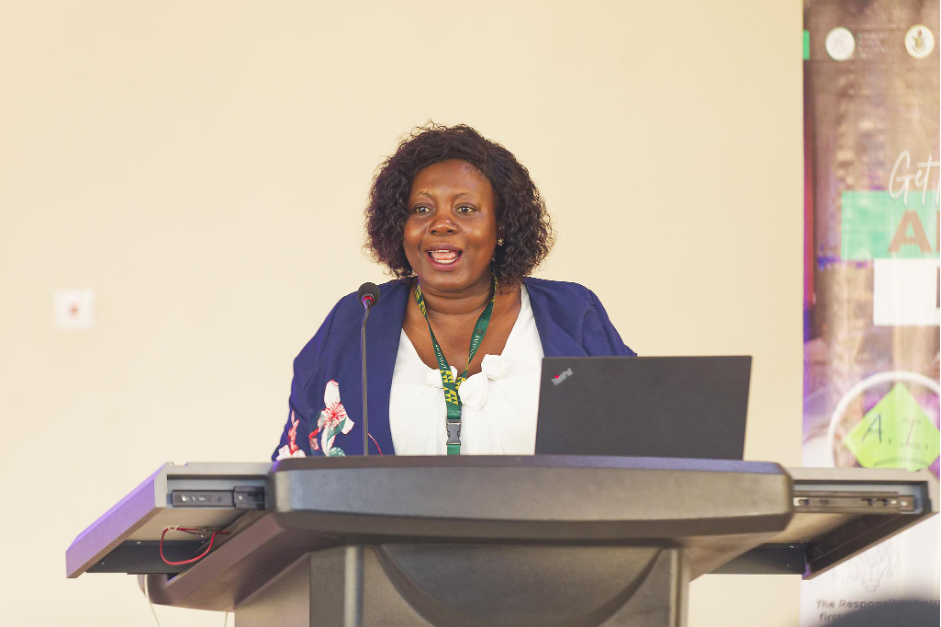
Dr. Eunice Akyereko Adjei, Women in Technology Lead at RAIL, welcomed participants and outlined the lab’s mission of using AI and other technologies to enhance operations of the various sectors. She said the lab’s focus is to equip stakeholders with practical skills to scale their operations using advanced technology, emphasising the power of AI to improve efficiency and expose them to innovative solutions that could be implemented in their everyday operations.
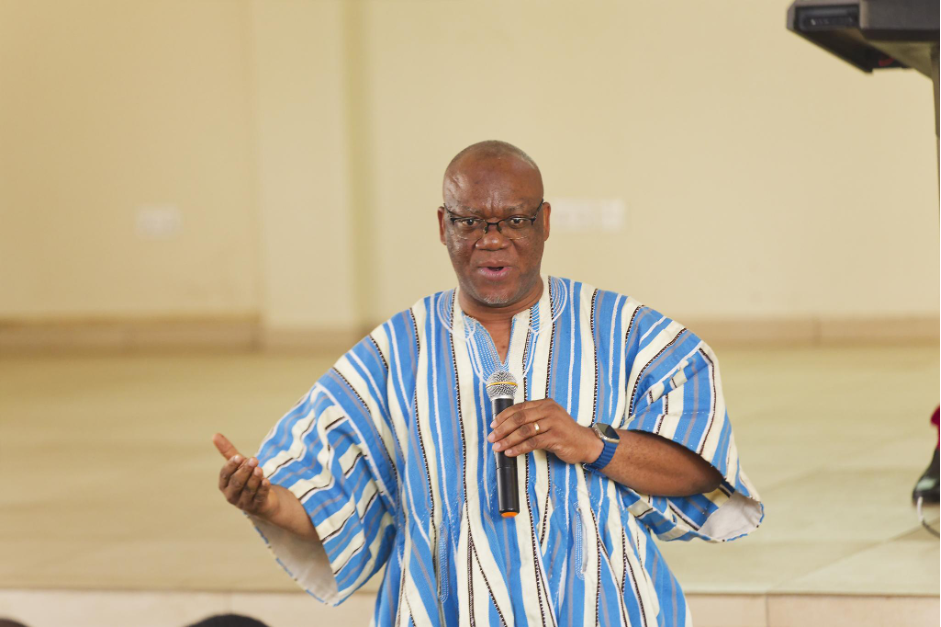
Prof. Jerry John Kponyo, Principal Investigator and Scientific Director of RAIL, spoke about the lab’s role in advancing national development. He mentioned that AI is a data processing and decision-making tool and emphasised its critical role in various sectors, such as healthcare, agriculture, and education. Prof. Kponyo stated that RAIL aims to promote AI’s inclusive and ethical use to achieve the Sustainable Development Goals (SDGs), especially in rural communities. He further highlighted the potential of incorporating indigenous technologies alongside AI to meet local needs.
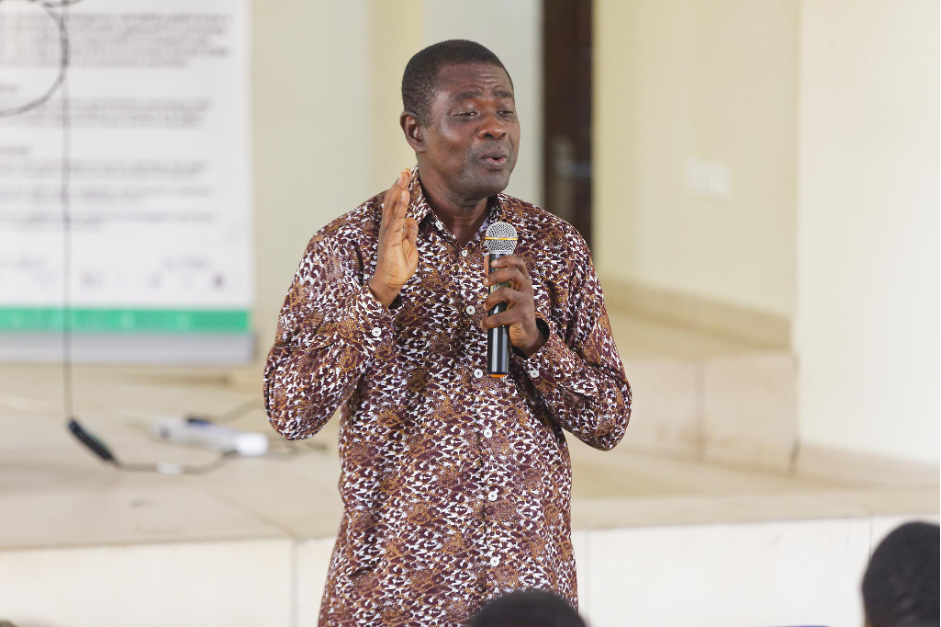
Prof. Francis Davis, Director of the Technology Consultancy Centre (TCC) – CMET, introduced TCC-CMET to the participants. The core mandates of TCC are as follows:
1. To undertake collaborative research to develop and transfer innovative engineering solutions and manufacturing technology for the sustainable development of the West African Sub-region and beyond.
2. To provide technical assistance to improve competencies and promote standards in manufacturing and technology.
3. To promote modernisation and automation of indigenous manufacturing and industrial practices using modern digital and smart technologies.
4. To provide space for product development, dissemination and knowledge uptake and facilitate continuous professional development in relevant areas of engineering and technology within the West Africa Sub-region and beyond.
5. To develop policy briefs to inform (and influence) national and sub-regional policy direction on engineering innovation, manufacturing and technology transfer.
He stated that TCC understands the transformative power of technology in driving infrastructure solutions and addressed the importance of applying modern digital technologies to improve manufacturing and industrial practices in Ghana. He outlined recent TCC initiatives, such as fabricating corn shellers and corn cob charring systems for clean energy production at Akrofonso, turning agricultural waste into manure, and conducting auto-diagnostics training. He stressed the importance of critical thinking, innovation, and using indigenous resources to tackle developmental challenges, noting that education is key to unlocking these solutions.
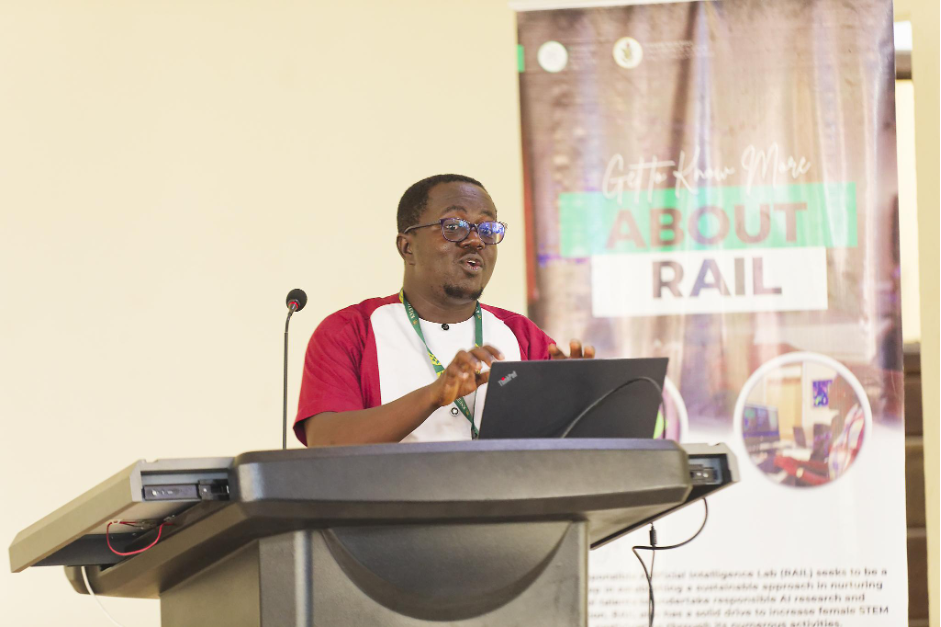
Dr. Dr. Seth Christopher Yaw Appiah, RAIL Ethics Consultant spoke on the need for inclusion and diversity in project design and implementation. Inclusive AI is designing and developing artificial intelligence systems that respect and represent the diversity of human values, cultures, identities, and abilities. Considerations such as age, need, purpose, and market demand are crucial when developing technology solutions. He further noted that technological solutions must actively mitigate biases that threaten inclusivity. He indicated that there are solutions to enhancing diversity and inclusion in the technology solution hunt. Also, frameworks for regulating ethics and inclusion are necessary for AI solutions, such as ISO 26000 and FACETS framework developed by the Responsible Artificial Intelligence Lab, KNUST. Developers need to create a diversified need and target specified AI solutions for underrepresented minorities and healthcare, disability justice and human rights scholars, and gender activists setting supporting monitoring for assistive and augmentative devices. In conclusion, inclusive and diversified scientific-technological solutions can be guaranteed if Inclusion and diversity are prioritised in all spheres, from solution conceptualisation to deployment and evaluation.

Ms.Winfred Kotin, Technology Entrepreneur and Consultant from Eagle Innovation, Accra, addressed some of the barriers to the successful adoption of technology virtually. These include visibility of technology solutions, customisation to local needs, digital literacy, and fears surrounding using new technology. She indicated that technology providers overlook these challenges during product development and project implementation.
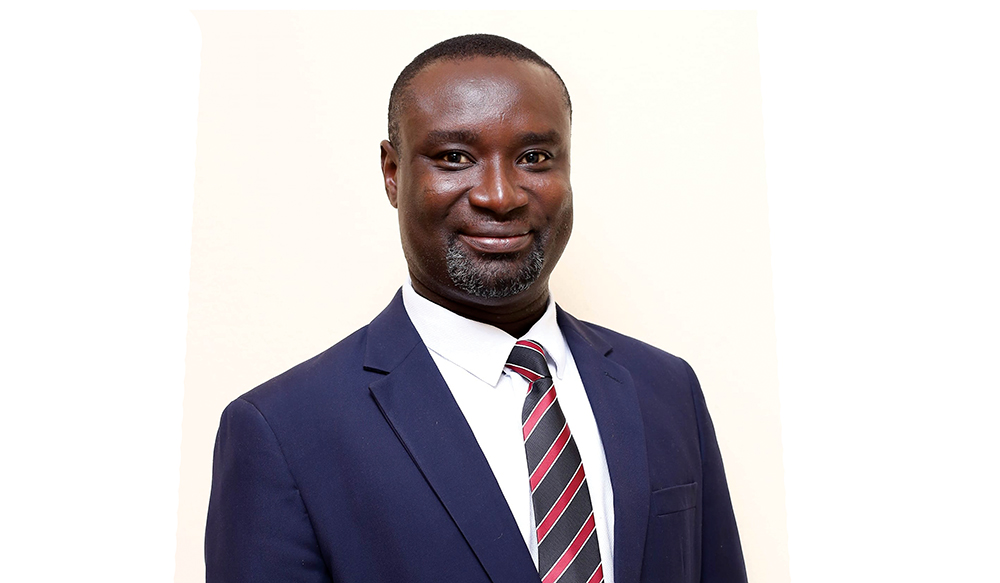
Dr. Paul Kwadwo Addo, Senior Lecturer at the Department of Education KNUST, shared a recorded message on the future of technology in teaching, assessment and research in education with the participants. He indicated that Institutions must have systems, policies and structures for “the future of education”. E.g. KNUST’s Centre for Educational Research and Development, FES, E-Learning Centre, RAIL, KEEP, etc. We are in an era where data-driven research must guide educational improvement interventions/strategies. E.g. student assessment of teaching, peer evaluation of teaching, etc. He concluded that the world is evolving, and there is a need to integrate modern technologies in our pedagogies and assessments to equip learners with 21st-century skills to prepare them for lifelong learning and the field of work.
During the breakout session for the various sectors, the participants brainstormed on the operations of their activities to identify common areas to integrate AI technology and outline the functional requirements of the solution.
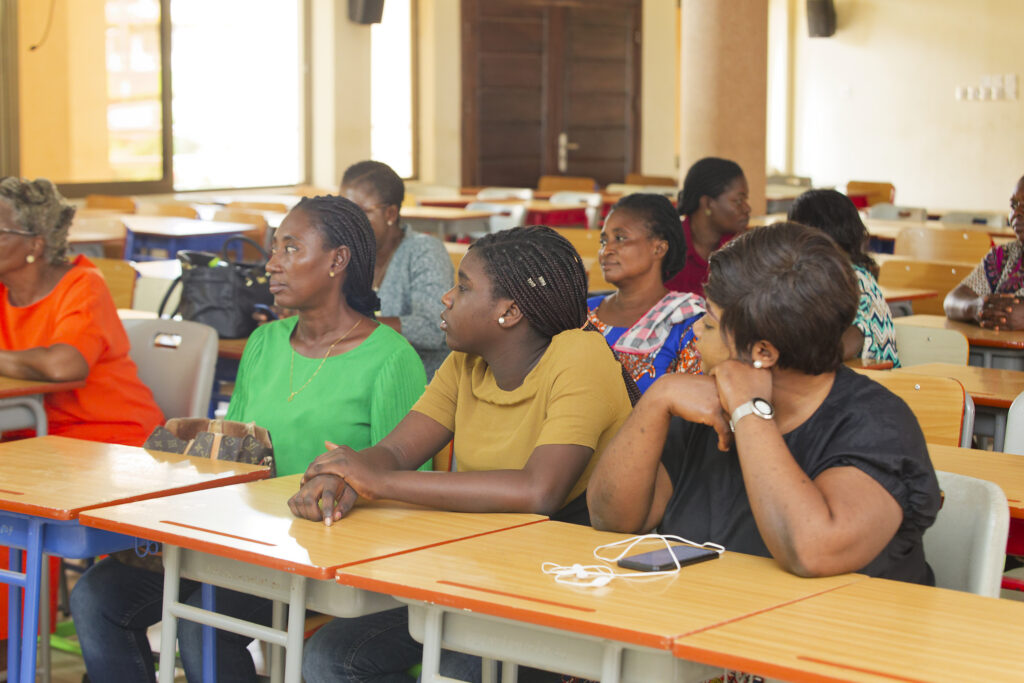
The event’s breakout session allowed participants to engage in sector-specific discussions, where they were guided by experts who provided tailored advice on how to implement the knowledge gained in their respective fields.
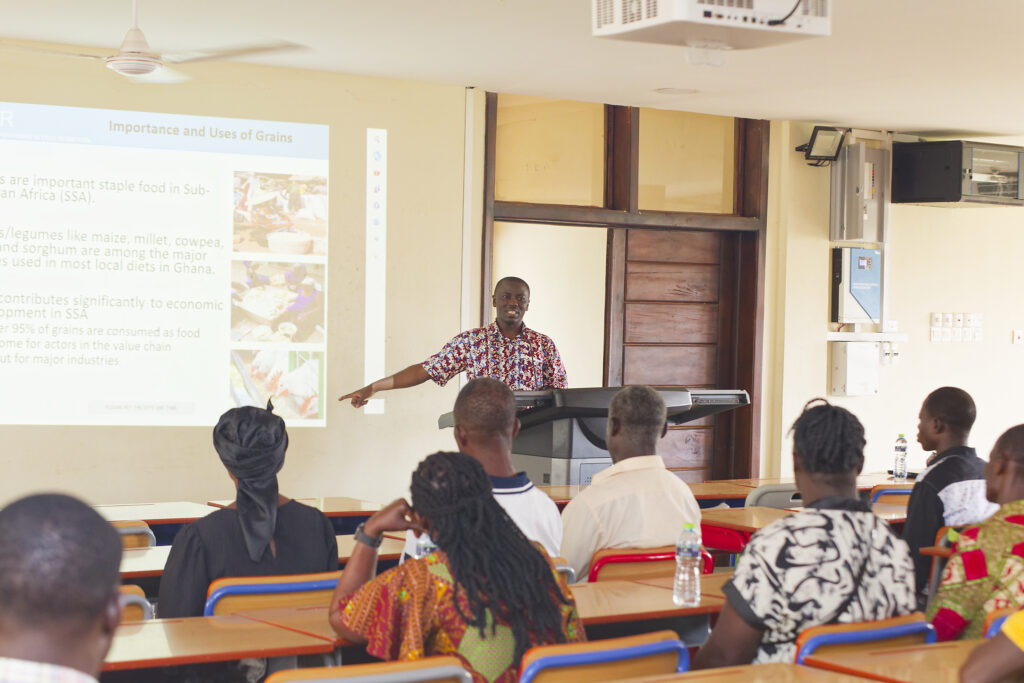
The breakout session on Technology in Agriculture, facilitated by Prof. Joseph Akowah, Head of the Department of Agricultural and Biosystems Engineering at KNUST, was supported by Dr Martina Francisca Baidoo and Mr Nana Kwaku Baa Derkyi. Prof. Akowuah addressed post-harvest losses and enhanced agricultural productivity through improved storage and drying methods. This session provided valuable insights into overcoming post-harvest challenges and highlighted practical, modern solutions for improving storage and drying processes in agriculture. Prof Akowuah reiterated the need for applicable technologies for post-harvest quality preservation in Agriculture. Prof Akowuah indicated some of the challenges of drying in Ghana, such as germination of grains due to humidity, quantitative losses, field Infestation, unreliability in drying, and animal contamination. Also, he listed some commercially installed drying systems for grains, but there are a few challenges, such as high cost, accessibility to the farmers, and inadequate knowledge of post-harvest losses. He further advised participants to use the acronym D.I.C.E to Improve Food Safety & Maximize Profits. D-Dry grain before bagging, I-Inspect warehouse before storing grain, C-Clean warehouse and surroundings regularly and E- Examine grain regularly. The participants discussed that the supply chain for food distribution typically follows this cycle: smallholder farmers to aggregators/merchants, then to processors, and finally to the end use as food or feed. In some cases, smallholder farmers or aggregators/merchants can supply directly to the end user, bypassing processors. In conclusion, it is crucial to identify optimal methods for drying grains, as traditional approaches, such as tarpaulins, are often inefficient and may compromise grain quality.

Dr Eunice Akyereko Adjei, Women in Technology Lead at RAIL, facilitated the breakout session and was supported by Gloria Edumaba Graham. Dr Adjei focused on women entrepreneurs’ challenges in small and medium-scale businesses, particularly in food production and processing. The discussions covered various technological needs to improve efficiency, product quality, and safety. This session highlighted the critical need for technological advancements to support small and medium-scale women entrepreneurs, particularly in reducing health risks, managing waste, enhancing product quality, and meeting global standards. The participants called for innovations tailored to their specific industries to boost productivity and sustainability.
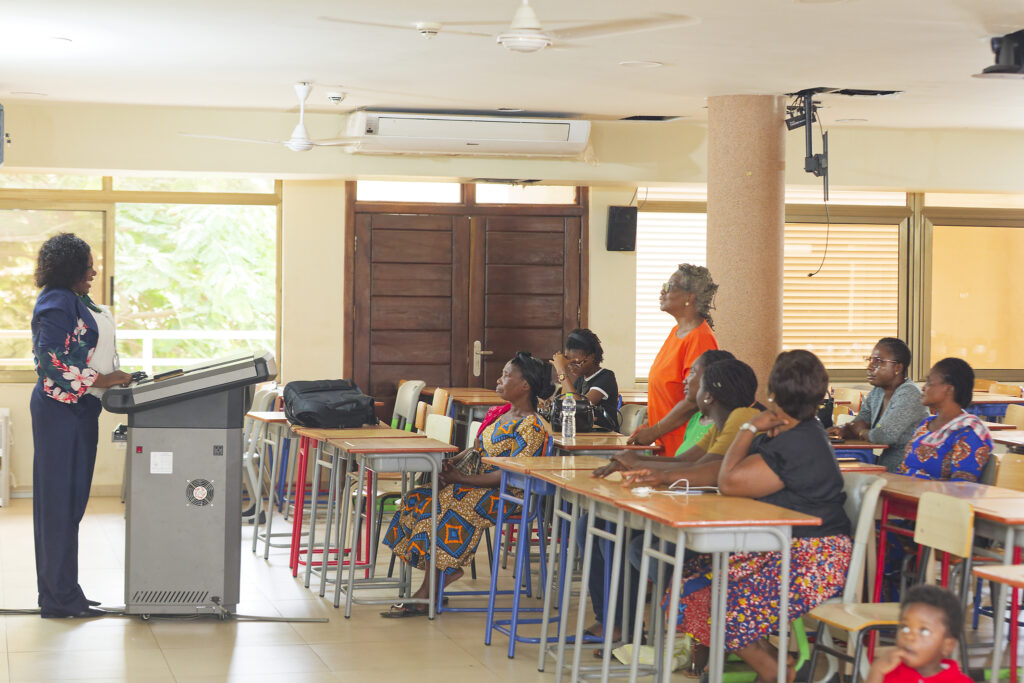
Dr Eunice Akyereko Adjei, Women in Technology Lead at RAIL, facilitated the breakout session and was supported by Gloria Edumaba Graham. Dr Adjei focused on women entrepreneurs’ challenges in small and medium-scale businesses, particularly in food production and processing. The discussions covered various technological needs to improve efficiency, product quality, and safety. This session highlighted the critical need for technological advancements to support small and medium-scale women entrepreneurs, particularly in reducing health risks, managing waste, enhancing product quality, and meeting global standards. The participants called for innovations tailored to their specific industries to boost productivity and sustainability.
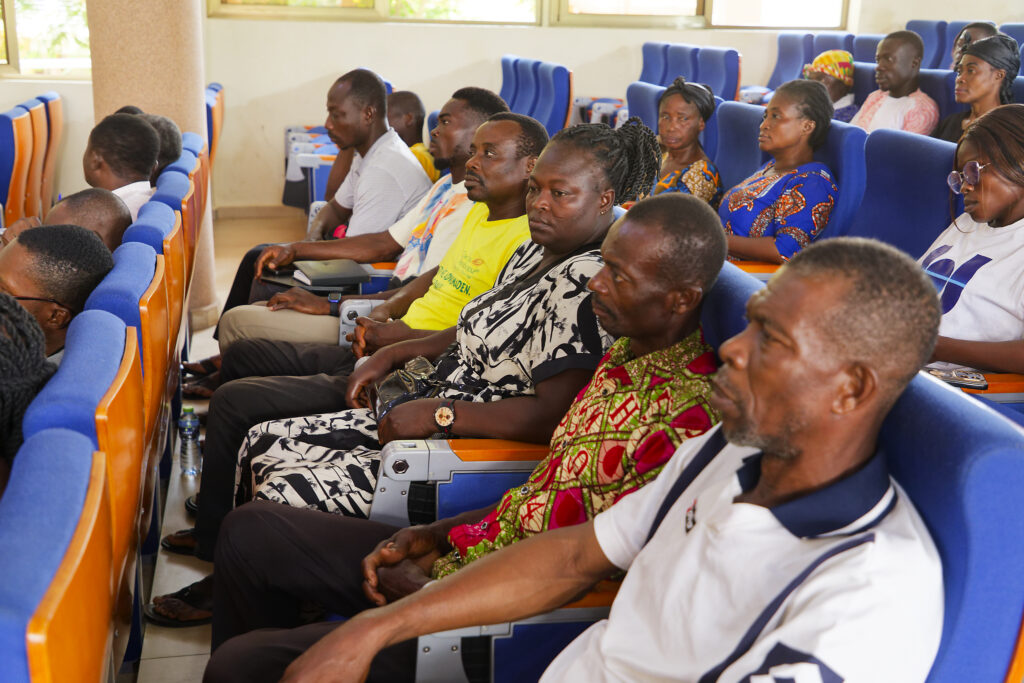
Dr. Henry Barton Essel facilitated the session. Dr Kwame Oteng Gyasi and Rachael Yayra supported the Department of Educational Innovations in Science and Technology. Dr Essel focused on the challenges and opportunities of integrating technology into education. Technology integration in education promises enhanced learning experiences, but educators face significant challenges in engaging students across different age groups. Dr Essel enumerated some of the existing EdTech such as HyFlex, Learning Management Systems (e.g., Canvas, Moodle), Artificial Intelligence, Immersive Technologies like virtual, augmented, and mixed reality, gamification, flipped classroom, personalised Learning, and Mobile Learning. The team identified cross-cutting challenges from Junior High School to tertiary education and identified a proposed technological solution with its functional requirement. Engaging students across all levels with educational technology presents significant challenges, but Generative AI offers promising solutions. By personalising learning experiences, creating interactive content, and empowering teachers, we can harness the power of AI to create more engaging and effective educational environments.
The key to success lies in thoughtful implementation, ongoing assessment, and a commitment to balancing technological innovation with sound pedagogical practices. As we move forward, it’s crucial to focus on the ultimate goal: fostering a love of learning and preparing students for success in a rapidly evolving world. Participants discussed barriers to successful implementation, especially in primary and secondary schools, and potential solutions to enhance teaching and learning experiences. This session highlighted the critical need for affordable technology, better infrastructure, and comprehensive stakeholder training. Participants emphasised the importance of realistic solutions tailored to the everyday challenges of teachers, students, and parents in enhancing education through technology.
In conclusion, the key takeaways were that EdTech is rapidly evolving, there is a need to balance innovation with pedagogical needs, and it’s crucial for facilitators at various levels of education to participate in continuous learning.
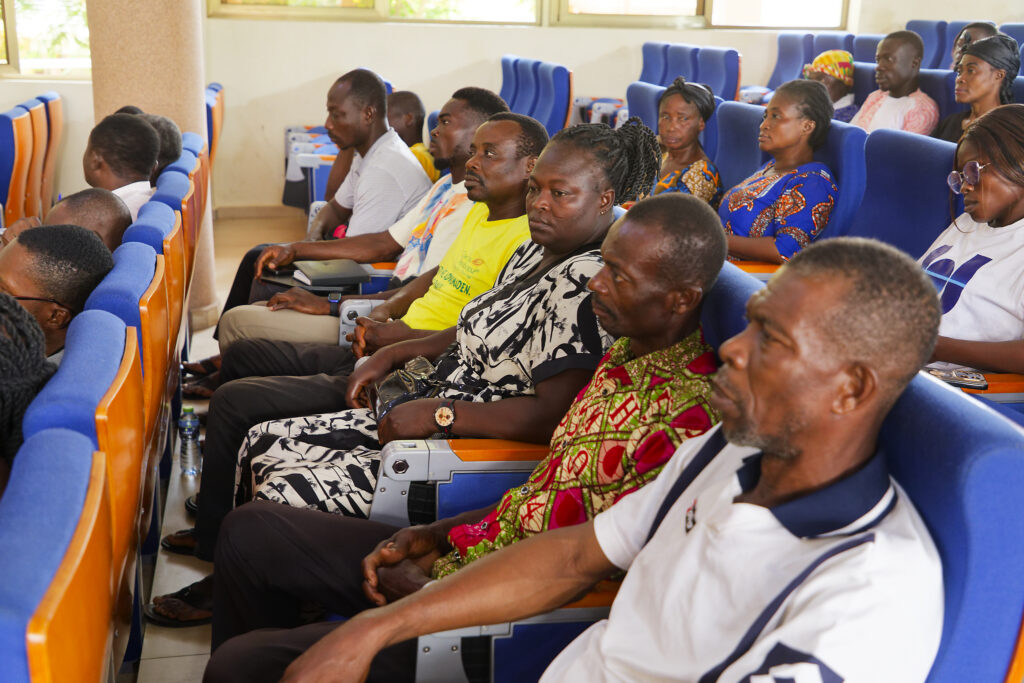
This hands-on approach allowed participants to explore practical solutions to their challenges and discover ways to integrate technology into their daily operations.
The capacity-building workshop was a significant step toward fostering greater collaboration and technological advancement across multiple sectors, empowering stakeholders to harness the potential of AI and digital platforms for their development in the Fourth Industrial Revolution.


